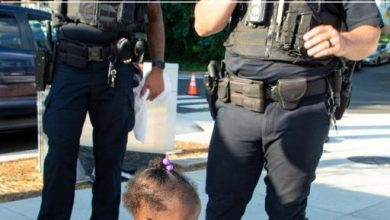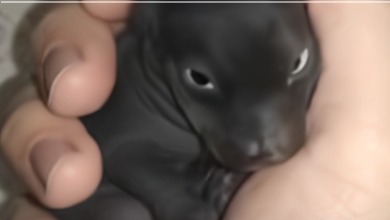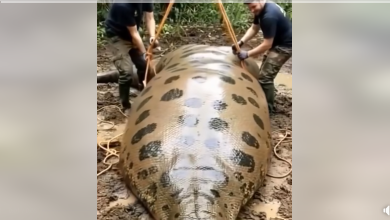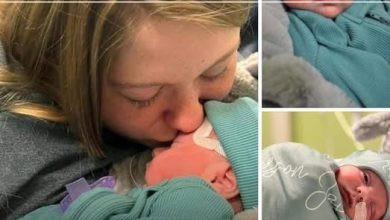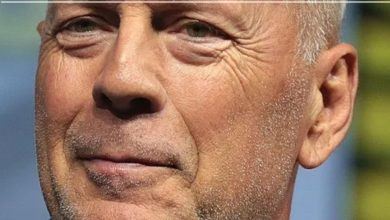She discovered an injured pigeon on the sidewalk and stayed with it for hours. “If it’s going to die,” she said softly, “it shouldn’t have to die alone.”
At first, I thought she was just another kid messing with trash—something you see a lot around here. But as I got closer, I realized she wasn’t playing. She was crying. Not loud, just that quiet, trembling kind of crying that says everything without a word.
The pigeon beside her was barely moving, its wing bent wrong, jerking every so often like it was torn between fighting and giving up. I crouched down.
“Did you see what happened?” I asked.
She shook her head. “It was already hurt. People just kept walking past.”
I didn’t know what to say. Most folks don’t stop for birds—dead or alive. But she had. She was shielding its face from the wind with a frayed scarf, like that small gesture might help.
Then she whispered, “If it’s gonna die, it shouldn’t be alone.”
That line stuck with me. I almost told her it was just a bird, that we should go. But something in her expression stopped me—like this tiny life meant more than we could understand.
Time passed. The sun dropped lower. Her hands turned blue with cold. I offered my coat. She refused.
Right as I reached for my phone to call someone—anyone—the bird gave a final, shuddering twitch.
She leaned in and whispered, “It’s okay. You can go now.”
And it did. Stillness replaced every twitch. She didn’t cry louder. She didn’t move.
I asked quietly, “Do you want help… taking it somewhere?”
She nodded.
I wrapped the pigeon in my hoodie. It felt so light, like holding air.
Instead of a park, she led me behind an old bakery to a patch of untouched dirt. She dug with her hands, no hesitation, and when the hole was ready, she laid the bird down like it was sleeping. Then she covered it with care.
“My brother used to bury bugs,” she said. “He believed everything deserved a soft goodbye.”
I didn’t ask where her brother was. Something told me not to.
“What’s your name?”
“Lina.”
“I’m Marc.”
She nodded. No smile, just stared at the grave.
“Do you live nearby?”
“Sometimes.”
That answer said a lot. I didn’t press.
We sat a little longer, mourning a bird most people wouldn’t have noticed.
“You hungry?” I asked.
She looked up for the first time since the pigeon died. “A little.”
I had five bucks—enough for a couple pastries and hot chocolate. Mrs. Delgado at the bakery added an extra roll when she saw Lina’s hands.
We ate on the curb. She devoured hers like it had been days since a proper meal.
“You come here often?”
“When it’s quiet. People don’t notice you if you keep moving.”
“You don’t have a place?”
“My aunt’s place is crowded. Couch is mine sometimes. Not when her boyfriend’s over.”
I nodded. Her guarded eyes made more sense now.
“You ever tell anyone?”
She shook her head. “They just send you somewhere worse.”
Hard to argue with that.
We finished eating. She folded the paper bag carefully and tucked it away.
“Thank you,” she said.
“For what?”
“For seeing me.”
Those words stayed with me.
I didn’t see her again for a while. I kept walking the same block, checking behind the bakery, but nothing. Then one Sunday, two weeks later, I spotted her at the school playground.
She looked better. Cleaner. Lighter.
“I’ve been going to the shelter on Elm Street,” she said. “They have a cat. Her name’s Spoon.”
“Spoon?”
“She swipes food like she’s using a spoon.”
We laughed. It felt good.
Lina started doing chores there—gardening, sweeping—in exchange for food and a bed. A woman named Ruth even helped her with schoolwork.
“She says I’m smart,” Lina told me. “Not sure if she means it.”
“I bet she does,” I said.
That earned a tiny smile.
We kept meeting up—Saturday mornings with muffins and juice. Some days we talked, some we just sat. Then one day, she said, “I think I want to be a vet.”
“For animals?”
She nodded. “That pigeon didn’t have anyone. But if someone had helped it in time…”
She paused.
“I want to be the person who shows up early enough.”
I couldn’t respond, so I bumped her shoulder.
Years passed. She stayed at the shelter, enrolled in a support program, finished school, and applied for scholarships.
I moved across town, but we stayed in touch.
One rainy evening, she called.
“I did it.”
“Did what?”
“Full ride. Pre-vet program.”
I dropped my phone.
She laughed. “You okay?”
“I’m proud of you,” I said, blinking away tears in a grocery aisle.
We met that weekend. She looked the same, just steadier, lighter inside.
“I still think about that pigeon,” she admitted. “It wasn’t the first thing I saw die.”
“Maybe because you gave it something no one else did.”
“Like what?”
“Kindness. A proper goodbye.”
She looked at me. “Maybe I needed that goodbye more than it did.”
I didn’t respond. I didn’t need to.
A year later, I got a photo: Lina in a white coat, stethoscope around her neck, holding a tiny kitten. Caption: One down, thousands to go.
It’s still on my fridge.
Whenever life feels too heavy, I look at that photo and remember: the little girl, the dying bird, and the quiet kindness that changed both our lives.
Because sometimes healing starts with one person choosing not to look away.
So if you see someone in pain—even a kid, even a bird—don’t step around them.
Stop. Sit. Be present.
You never know what that moment might grow into.
